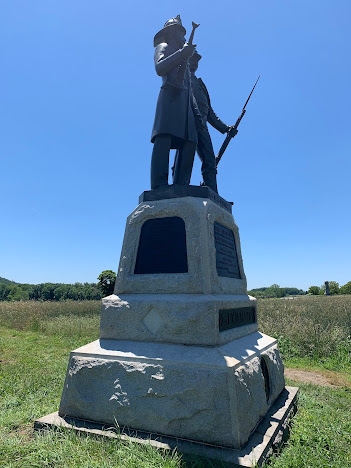This year the Solemnity of the Sacred Heart of Jesus falls on June 27, much later than usual because of the late Easter. But all of June is the Month of the Sacred Heart, and we should focus on this theological and cultural gift we have as Catholics to remind ourselves that we know what -- and Who – love is. I found some words of Pope Saint John Paul II from 1999 to share on the subject.
Monsignor Smith
"The Church seems in a particular way to profess the mercy of God and to venerate it when she directs herself to the Heart of Christ. In fact, it is precisely this drawing close to Christ in the mystery of his Heart which enables us to dwell on this point - a point in a sense central and also most accessible on the human level - of the revelation of the merciful love of the Father, a revelation which constituted the central content of the messianic mission of the Son of Man" (n. 13).
On the occasion of the Solemnity of the Sacred Heart and the month of June, I have often urged the faithful to persevere in the practice of this devotion, which "contains a message which in our day has an extraordinary timeliness", because "an unending spring of life, giving hope to every person, has streamed precisely from the Heart of God's Son, who died on the Cross. From the Heart of Christ crucified is born the new humanity redeemed from sin. The man of the year 2000 needs Christ's Heart to know God and to know himself; he needs it to build the civilization of love" (8 June 1994; L'Osservatore Romano English edition, 15 June 1994, p. 3).
The faithful still need to be guided to contemplate adoringly the mystery of Christ, the God-Man, in order to become men and women of interior life, people who feel and live the call to new life, to holiness, to reparation which is apostolic cooperation in the salvation of the world, people who prepare themselves for the new evangelization, recognizing the Heart of Christ as the heart of the Church: it is urgent for the world to understand that Christianity is the religion of love.
The Savior's Heart invites us to return to the Father's love, which is the source of every authentic love: "In this is love, not that we loved God but that he loved us and sent his Son to be the expiation for our sins" (1 Jn 4:10). Jesus ceaselessly receives from the Father, rich in mercy and compassion, the love which he lavishes upon human beings (cf. Eph 2:4; Jas 5:11). His Heart particularly reveals the generosity of God towards sinners. God's reaction to sin is not to lessen his love, but to expand it into a flow of mercy which becomes the initiative of the Redemption.
Contemplation of the Heart of Jesus in the Eucharist will spur the faithful to seek in that Heart the inexhaustible mystery of the priesthood of Christ and of the Church. It will enable them to taste, in communion with their brothers and sisters, the spiritual sweetness of charity at its very source. By helping all to rediscover their own Baptism, it will make them more aware of having to live their apostolic dimension by spreading love and participating in the mission of evangelization. Each person needs to be more committed to praying the Lord of the harvest (cf. Mt 9:38) to grant the Church "shepherds after his own heart" (Jer 3:15) who, in love with Christ the Good Shepherd, will pattern their own hearts on his and be ready to go out into the highways of the world to proclaim to all that he is the Way, the Truth and the Life (cf. Post-Synodal Apostolic Exhortation Pastores dabo vobis, n. 82). To this we must add effective action so that many of today's young people, docile to the voice of the Holy Spirit, may be taught to let the great expectations of the Church and of humanity resonate in the depths of their hearts and to respond to Christ's invitation to consecrate themselves enthusiastically and joyously with him "for the life of the world" (Jn 6:51).



